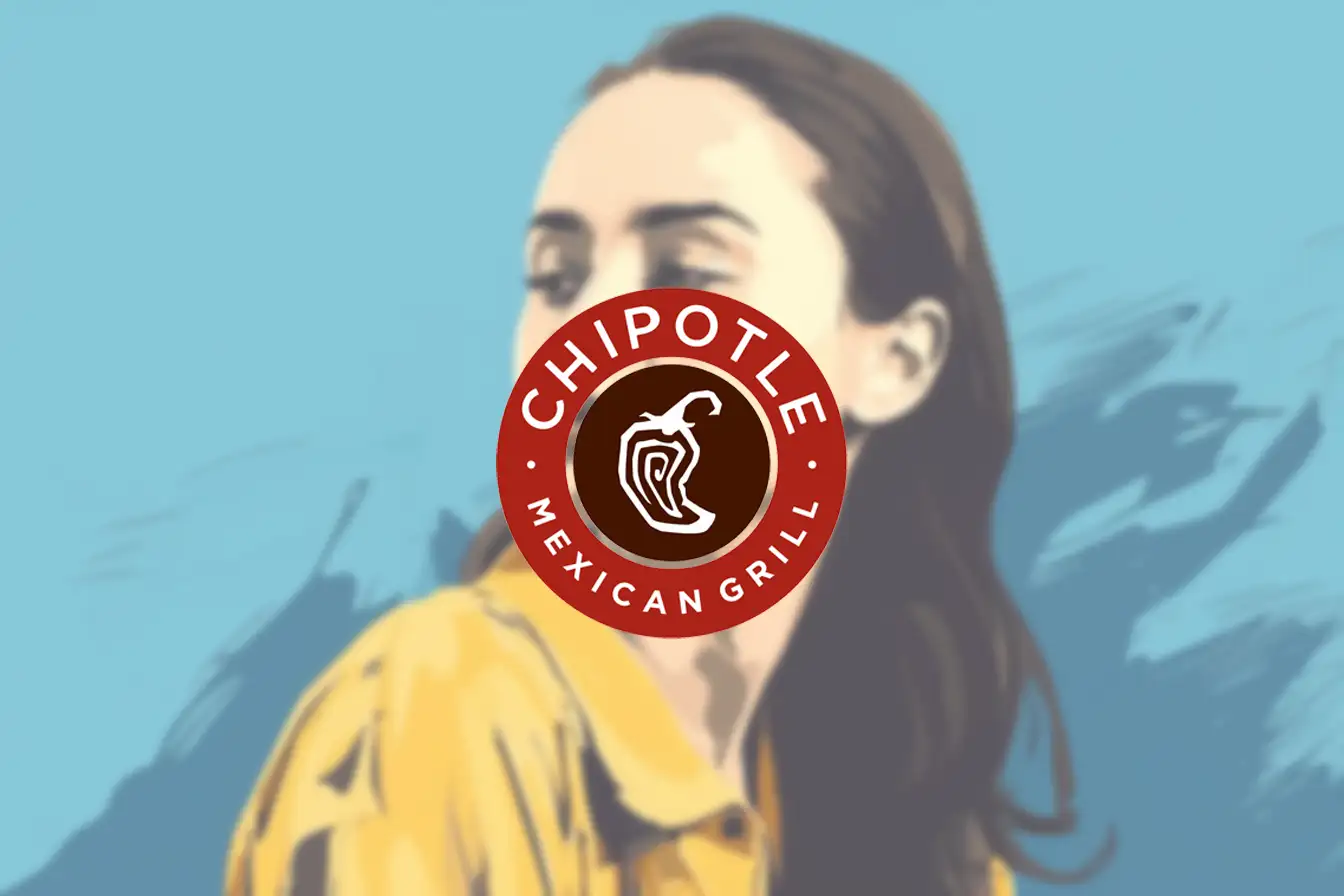Quick Comparison
& Insights
The MIND diet focuses on specific foods to promote brain health while Weight Watchers uses a points system for weight loss.
Start Weight Watchers today for only $10 per month.
Quick Comparison
& Insights
The MIND diet focuses on specific foods to promote brain health while Weight Watchers uses a points system for weight loss.
In this post, we'll delve into a comprehensive comparison between Weight Watchers and the MIND Diet.
Both have unique approaches – one targeting a broader spectrum of weight loss and lifestyle change, and the other focusing on cognitive health while also offering potential weight loss benefits.

MIND Diet
The MIND (Mediterranean-DASH Diet Intervention for Neurodegenerative Delay) diet focuses on cognitive health, particularly for aging populations.
Initially introduced in studies by Dr. Martha Clare Morris and colleagues at Rush University Medical Center and the Harvard Chan School of Public Health, it combines elements of the Mediterranean and DASH diets, both of which have been linked to preserving cognitive function.
How It Works
The MIND diet suggests specific foods to include and avoid. The healthy items, for instance, include 3+ servings a day of whole grains, 1+ servings a day of vegetables other than green leafy ones, 6+ servings a week of green leafy vegetables, and more.
Unhealthy items include foods higher in saturated and trans fats like red meat, cheese, and fried foods.
The MIND Diet, focusing on cognitive health, is aimed at aging populations and those concerned about neurodegenerative delay. Although not primarily a weight loss diet, its emphasis on whole foods and lean proteins could aid in weight loss.
Recommended Foods
Key Factors
- Cognitive Benefits: Those with higher MIND diet scores showed a significantly slower rate of cognitive decline and a 53% lower rate of Alzheimer's disease.
- Cardiovascular Health: The diet's features also have benefits for cardiovascular health, diabetes, and certain cancers, as it includes elements of Mediterranean and DASH diets known to lower these risks.
- Flexibility: The diet allows for considerable flexibility but does not offer rigid meal plans, which can be both a pro and a con based on individual needs.
Quantitative Analysis
- Cognitive Decline: Participants with the highest MIND diet scores had a significantly slower rate of cognitive decline compared to those with the lowest scores.
- Alzheimer's Risk: The diet is associated with a 53% lower rate of Alzheimer's for those with the highest MIND diet scores and a 35% lower rate for those with moderate scores, even after adjusting for other factors.
Pros and Cons
Pros:
- Evidence-based benefits for cognitive health
- Potential benefits for cardiovascular health and other conditions
- Flexibility in food choices
Cons:
- May be challenging for those who do not cook
- Lack of rigid meal plans could make it harder to adhere to the diet
- Inconclusive evidence on whether it can slow cognitive aging over longer time periods
Unique Features
- Holistic Benefits: Unlike most diets, the MIND diet targets cognitive health while also benefitting other aspects of physical health.
- Scientific Backing: The diet was developed based on scientific research targeting neurodegenerative delay.
Historical Context
The MIND diet was introduced in 2015 and has since been the subject of various studies, with mixed but generally positive results concerning its effects on cognitive decline and Alzheimer's risk.
Design Insight
The diet offers flexibility but may require users to be proactive in planning their meals. It balances ease of adherence with the need for specific dietary components.
Additional Resources
For those interested in following the MIND diet, consultation with a registered dietitian is advisable for personalized meal planning.
Purchase Options
Considering multiple vendors for whole grains, nuts, and olive oil can provide flexibility in terms of price and quality.
Best-Case Claims
If you're aiming to reduce your risk of cognitive decline and Alzheimer's, the MIND diet could be considered one of the best options based on current research.
The MIND diet offers a well-researched and flexible approach to cognitive health and potentially other health benefits. However, more long-term studies are needed to validate its efficacy fully. Given its substantial scientific backing, it holds promise for those concerned about cognitive decline and other health issues. For more in-depth information, you may refer to the studies published by Rush University Medical Center and the Harvard Chan School of Public Health or consult a healthcare provider.

Weight Watchers
How it Works
Weight Watchers, also known as WW, is a weight-loss program that employs a multi-faceted approach to help you lose weight and maintain a healthy lifestyle. The program is based on a customized food plan tailored to your metabolic rate, tracked via a system called Points. This system assigns a point value to food items based on not just calories, but other nutritional factors like added sugars, protein, fiber, and types of fats.
Unique Features
- Points System: Unlike other programs that focus only on calorie-counting, WW uses a Points system that factors in the food's entire nutritional profile.
- ZeroPoint Foods: These are nutritional foods you can eat without having to track or measure them, allowing more flexibility in your diet.
- Customization: The program adapts to your metabolic rate, offering a personalized food plan.
- Tracking: The program emphasizes the importance of tracking your food intake, a practice backed by scientific studies to enhance weight loss outcomes.
- Community Support: 24/7 support is available through the app, where you can chat with WW coaches and other members.
- Technology Integration: The app features food, water, activity, sleep, and weight trackers, and even has a barcode scanner for easier grocery shopping.
Pros and Cons
Pros:
- Evidence-Based: WW members lose 2x more weight than doing it on their own according to a study published in JAMA Network Open. It is also the #1 doctor-recommended weight-loss program based on a 2020 IQVIA survey.
- Comprehensive Approach: Covers food intake, activity, and behavior modification.
- Flexibility: Allows for indulgence within the set Points limit, promoting a balanced lifestyle.
- Community Support: Continuous support from coaches and fellow members.
Cons:
- Cost: There is a membership fee, and special offers like a 60% discount are often time-limited.
- Overemphasis on Points: Some users may find the Points system a bit restrictive or complicated to follow.
Key Factors for Decision Making
- Personal Goals: Is your objective simply weight loss, or are you also interested in a long-term lifestyle change?
- Budget: Are you willing to invest financially in a program?
- Commitment Level: The program requires a commitment to tracking and possibly changing eating habits.
Design Insight
The app's user-friendly design makes it easier to track your progress and interact with the community, enhancing your overall user experience.
Additional Resources
For more details, you can visit the official Weight Watchers website where you can also find various recipes, success stories, and workshop details.
Purchase Options
While you can join through the official website, sometimes local health organizations collaborate with WW to offer discounted memberships. Make sure to explore these options to find the best deal.
Historical Context
Weight Watchers has been around since the 1960s and has continually adapted its program based on current scientific understanding. It has been ranked as the #1 Best Diet for Weight Loss by U.S. News & World Report for 13 consecutive years (2011–2023).
Given its robust approach to weight loss, it's worth considering if you are interested in not only shedding pounds but also in adopting a healthier lifestyle.
Weight Watchers vs MIND Diet Comparison
Cost
MIND diet: There's no official program associated with the MIND diet, hence no required fees. However, purchasing the recommended foods such as fresh berries, vegetables, fish, and olive oil may be a tad more expensive compared to opting for processed alternatives.
WW: The digital subscription for WW kicks off at $23 per month. For those interested in in-person workshops or personalized coaching packages, the prices range between $23 to $60 per month as per Everyday Health. You can sometimes find good discounts on our WW deals page.
Flexibility
MIND diet: Known for its flexibility, the MIND diet doesn’t enforce a strict meal plan. It emphasizes certain food groups but doesn’t cast away any.
WW: Mirroring the flexibility of the MIND diet, WW doesn’t place any foods off-limits. Its points system guides food choices, granting members the freedom to pick meals and snacks that dovetail with their preferences and lifestyle according to Harvard Nutrition Source.
Support
MIND diet: Unlike WW, the MIND diet doesn’t offer formal support. It's a self-guided journey based on the diet's guidelines.
WW: WW steps ahead with support, offering both in-person and virtual community interactions, personalized coaching, and a mobile app equipped with tools for tracking and accountability.
Effectiveness
MIND diet: Studies have showcased the MIND diet's potency in reducing the risk of Alzheimer's and dementia by 35-53% in observational studies. However, there's no evidence regarding its effectiveness for weight loss.
WW: Numerous studies confirm WW's effectiveness for weight loss and maintenance, with participants losing around 3-5% more weight than control groups as outlined by Healthline.
Approach
MIND diet: Focuses on incorporating brain-healthy foods like vegetables, berries, nuts, and fish while limiting butter, cheese, red meat, sweets, and fried foods.
WW: Utilizes the SmartPoints system to encourage nutritious choices and portion control, emphasizing overall wellness, not just weight.
The MIND diet emerges as a flexible eating pattern zeroed in on brain health, while WW provides more structured support for weight loss and maintenance. WW ranks higher for weight loss but entails a paid subscription. On the flip side, the MIND diet is free but demands self-motivation. For brain health, the MIND diet holds more evidence. For weight loss, WW has a more proven track record.
Weight Loss Focus
WW has a more direct focus on weight loss, with a structured system to track and manage food intake. The MIND Diet, while not tailored for weight loss, promotes a healthy eating pattern which could inadvertently lead to weight loss.
Community Support
WW offers a robust community support system, including 24/7 chat support with coaches and member interaction. The MIND Diet lacks a built-in community support system.
Ease of Adherence
WW provides a structured plan making it easier for individuals to follow, though some may find the points system restrictive. The MIND Diet offers more flexibility but may require more proactive planning from the individual.
WeightWatchers Clinic's Innovative Weight Loss Approach
WeightWatchers Clinic offers a unique weight loss program, blending prescription medication and lifestyle changes. This method is especially effective for individuals facing weight loss challenges due to biological reasons. Members report an average weight loss of 15% over a 26-week period.
- Medications Used: Includes GLP-1 receptor agonists like Semaglutide, Liraglutide, and Tirzepatide (weekly injections), and Naltrexone-Bupropion (oral).
- Insurance Support: The clinic assists in finding cost-effective medication options through insurance.
- Personalized Care: Program features individualized clinician care and a WeightWatchers membership.
- Holistic Approach: Focuses on combining medical, nutritional, and lifestyle strategies for effective weight management.
The WeightWatchers Clinic stands out as a holistic solution for effective weight management, particularly for those who struggle with conventional weight loss methods. Get started with Weight Watchers today.
{{auto1="/styling2"}}
Frequently Asked Questions
What do doctors say about the MIND diet?
The MIND diet was conceived by medical professionals and researchers at Rush University Medical Center, drawing from scientific evidence that correlates certain foods with enhanced brain health. Various studies elucidate that the MIND diet could diminish the risk of Alzheimer's disease and decelerate cognitive decline. Doctors extol the MIND diet as a potent dietary avenue for preserving brain health and potentially averting dementia as one ages, as highlighted by Harvard T.H. Chan School of Public Health.
What are the 5 foods to avoid on the MIND diet?
The MIND diet advocates for the limitation or avoidance of the following 5 foods:
- Butter and margarine: Less than 1 tablespoon daily
- Cheese: Less than 1 serving weekly
- Red meat: Less than 4 servings weekly
- Fried food: Less than 1 serving weekly
- Pastries and sweets: Less than 5 servings weekly
These guidelines align with the recommendations from Franciscan Health.
Are eggs on the MIND diet?
Yes, eggs find a place in the MIND diet. Although not specifically recommended, they aren’t restricted either. The nutrient-dense yolks harbor brain-nourishing constituents like choline and lutein.
Is MIND diet good for weight loss?
While not specifically tailored for weight loss, the MIND diet’s emphasis on plant-based foods and restriction on red meat, butter, cheese, fried food, and sweets may foster weight loss. Adhering to the diet's portion guidelines within a calorie-controlled regimen could drive weight loss, as mentioned by Medical News Today.
What are 3 foods that prevent Alzheimer's?
The triad of foods associated with warding off Alzheimer's and boosting brain health include:
- Green leafy vegetables like spinach and kale
- Berries, especially blueberries and strawberries
- Nuts like walnuts and almonds
These foods are highlighted by various sources for their potential in Alzheimer's prevention.
What do you eat for breakfast on the MIND diet?
MIND diet breakfast recommendations encompass:
- Oatmeal with blueberries and walnuts
- Greek yogurt with raspberries and almonds
- Egg white omelet with spinach and tomatoes
- Whole grain toast with avocado and tomato
Can I eat peanut butter on the MIND diet?
Certainly, peanut butter can be integrated into the MIND diet. Peanuts and peanut butter are sources of healthy fats and plant-based protein. A daily indulgence of 2 tablespoons of peanut butter is permissible as the diet endorses nut consumption at least 5 times per week.
What cheese is allowed on MIND diet?
The MIND diet suggests limiting cheese to less than 1 serving per week. When opting for cheese, selecting lower-fat variants like feta, mozzarella, cottage cheese, or Parmesan is advised by experts at Mind Diet Ideas.
What is the one fruit that may prevent dementia?
Blueberries are hailed for their potential in averting dementia and promoting brain health. They are packed with robust antioxidants named anthocyanins which may shield the brain from oxidative stress and inflammation.
{{wwreco="/styling"}}

Explore our Favourite Weight Loss Programs
Best Overall Diet App 2024
- Prioritizes a balanced relationship with food
- Weight, food and exercise logging tool to manage your health
- $70/mo or $209/year with alternate options available
- Over 45 million downloads and 45k+ 5-star reviews
9.9
Excellent Rating
View Our Other Diet Recommendations
(Now w/ GLP-1 Medications)
- 15% Average body weight lost with Rx meds*
- Powered by the creator of #1 doctor-recommended weight-loss program*
- Available in the award-winning WW app with features that simplify your journey
9.9
Excellent
Lose Weight With Fast Mimicking
- Fasting backed by over 20 years of scientific research
- Flexible purchase options, including HSA/FSA eligibility and subscription savings
- Simple to follow, pre-packaged meals
9.9
Excellent Rating
Best Quick Fat Burner Pills
- Reducing Hunger Cravings attributed to Capsimax
- Formulated with science-based clinically tested ingredients to help make the weight-loss process easier and more efficient
- Gluten-free, Non-GMO, no artificial sweeteners or colors
9.2
Very Good
By: Robert J Hancock, BA, CRA (WLU)
Clincal Research Expert
Rob's extensive expertise in evidence-based weight loss interventions, backed by rigorous peer-reviewed research, has established him as a credible authority in the field. As a clinical research associate (CRA), Rob has tested new applications for their effectiveness, risks and benefits to ensure that they are safe for consumers.
Featured Partner Offer.
Featured Partner Offer.
Featured Partner Offer.
Advertisement






































































































